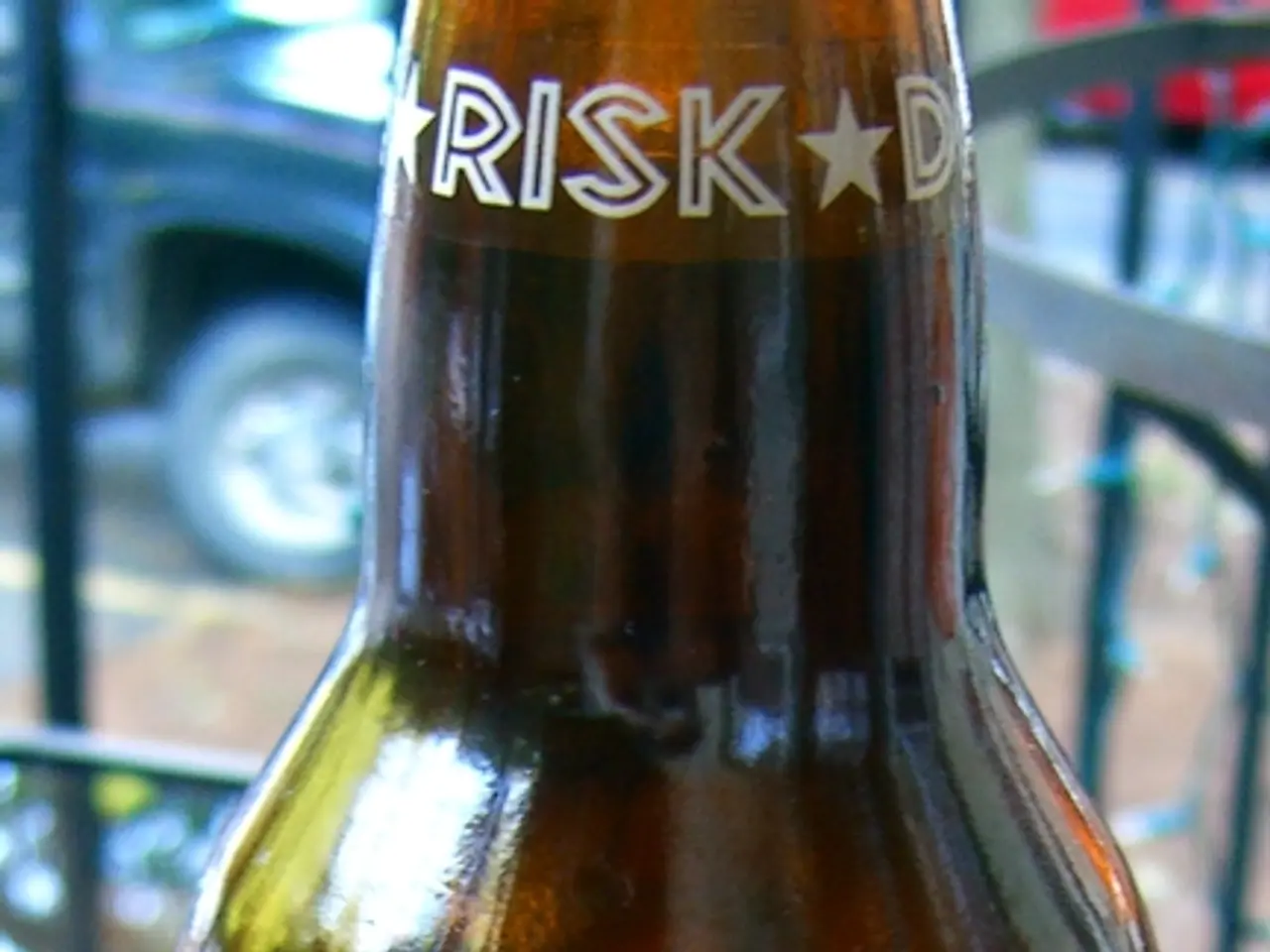Alcohol combined with summer's heat increases the risk of heat stroke
In the warm summer months, enjoying a cold drink can be a refreshing way to unwind. However, when that drink contains alcohol, it can pose significant risks to your health, particularly in hot weather. Consuming alcohol in hot weather increases the risk of dehydration and heat-related illnesses, including heat exhaustion and heat stroke [1][2][3].
Alcohol acts as a diuretic, causing increased urination, which leads to loss of essential body fluids and salts. Combined with sweating from heat, this depletes hydration levels rapidly. Additionally, alcohol impairs the body's ability to regulate temperature and dulls thirst perception, making it harder to notice the need to rehydrate or that body temperature is rising [1][2][3].
To reduce the risks while consuming alcohol in hot weather, there are several precautions to take. First and foremost, it's recommended to avoid drinking alcohol if possible, especially during heatwaves [1][3]. If you do choose to drink, the "zebra striping" method can be beneficial: alternate each alcoholic drink with a glass of water to slow alcohol intake and maintain hydration [1][3].
On extremely hot days, consider drinking two glasses of water for every one alcoholic drink [1][3]. Lower-alcohol beverages, such as low-ABV beer or spritzers, can also help lessen diuretic effects [2].
Carrying a refillable water bottle and sipping water regularly, even if you don't feel thirsty, is also essential [1][2]. Avoid caffeine and sugary drinks, as they can worsen dehydration. Opt instead for water or isotonic drinks that replenish lost salts and sugars [4].
Recognizing dehydration symptoms early is crucial since untreated dehydration can escalate to heat exhaustion or heat stroke, both of which require urgent medical attention [4]. Symptoms of dehydration include dry mouth, dizziness, confusion, and headaches. Heat exhaustion often begins with muscle cramping, weakness, dizziness, headache, rapid, weak pulse, and excessive sweating [4]. Heat stroke, in contrast, is characterized by dry and hot skin, confusion, agitation, slurred speech, high fever (104° or higher), seizures, coma, and potential death [4].
Even seasoned athletes or very active people are not immune to heat stroke [4]. To avoid heat stroke while drinking alcohol, it's recommended to drink plenty of water [1][2]. Drinking water every 30 minutes while actively consuming alcohol is also recommended to maintain hydration [5].
Consuming beet powder and salty foods can contribute to safer summer drinking, as they can help retain fluids [6]. Beet powder mixed into water can help increase blood flow and have a cooling effect during hot weather [6]. Eating salty foods while drinking can also help retain fluids [7].
It's important to note that alcohol can cause dehydration, despite the consumption of water [8]. Alcohol can raise body temperature to potentially dangerous levels due to the overworked liver [9]. Nitric oxide, a vital signaling molecule that keeps blood vessels healthy, is not directly related to the effects of alcohol in the heat [10]. However, it's worth mentioning that nitric oxide production lessens as one ages [11].
In summary, the key risks of drinking alcohol in hot weather stem from its dehydration effects and impaired temperature regulation, which can dangerously increase the likelihood of heat stroke. Staying adequately hydrated by drinking plenty of water alongside or instead of alcohol is essential to protect against these risks [1][2][3][4].
Science reveals that alcohol consumption in hot weather can lead to health-and-wellness risks, such as dehydration and heat-related illnesses like heat exhaustion and heat stroke. To mitigate these risks, the zebra striping method (alternating alcoholic drinks with water) can help maintain hydration during such periods. Additionally, nutrition plays a role in staying safe, as consuming beet powder and salty foods may help retain fluids and improve overall hydration.




